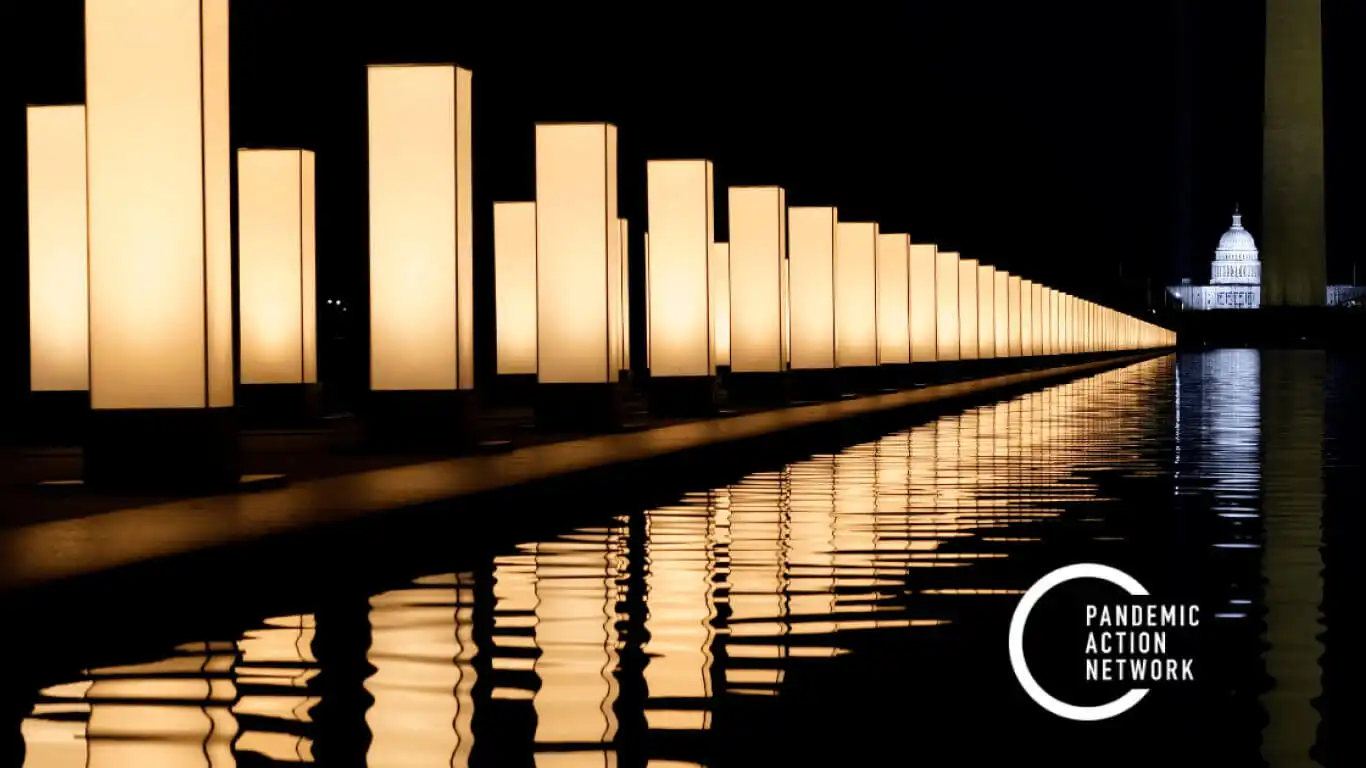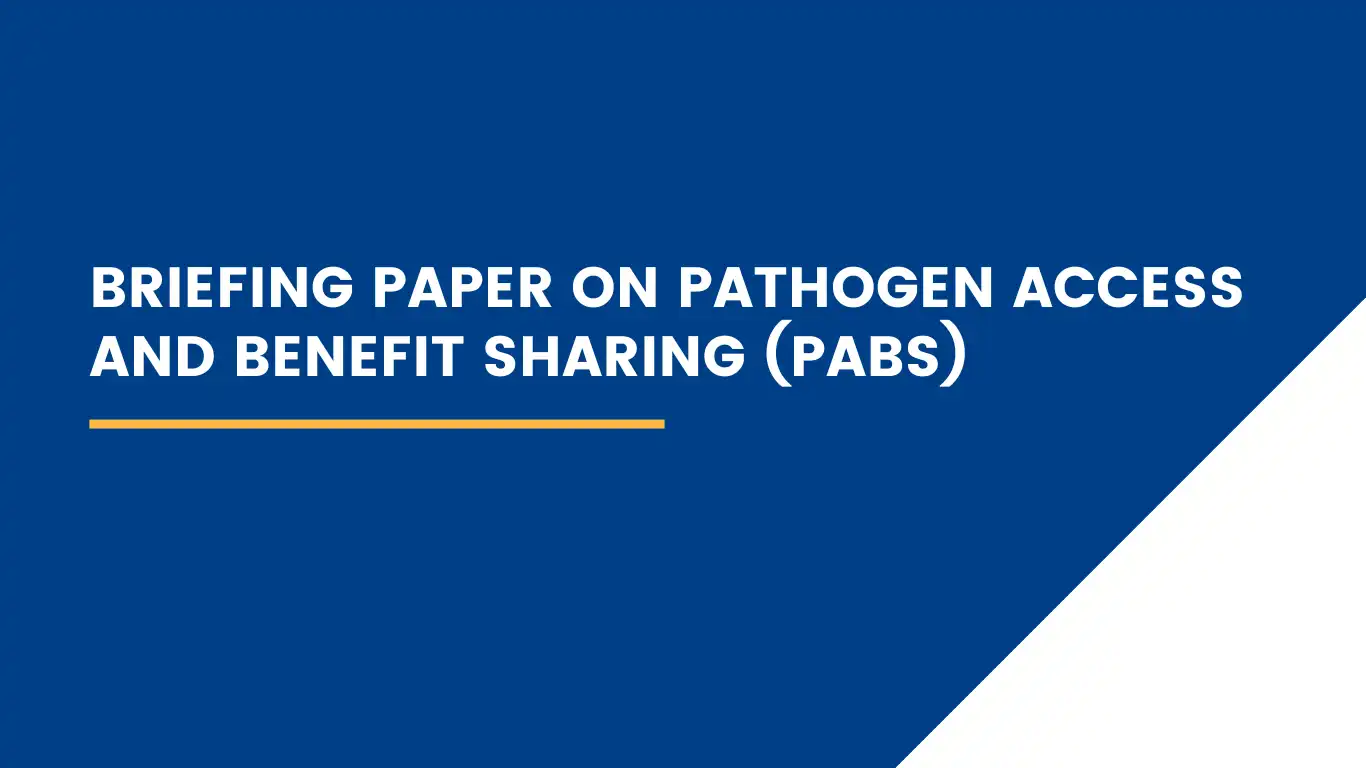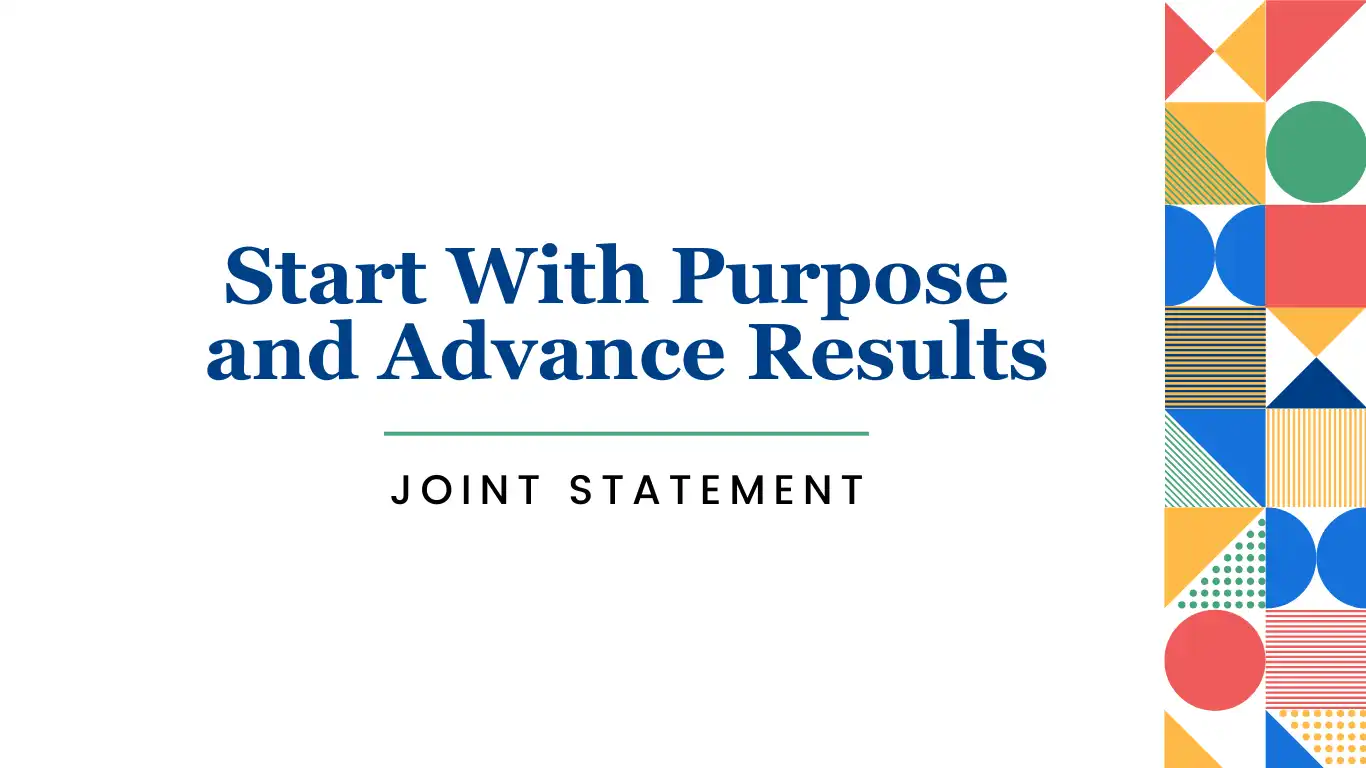By: Carolyn Reynolds
The inauguration of Joe Biden and Kamala Harris as the new U.S. President and Vice President has arrived with a mix of sadness and hope. The 400 lights along the Lincoln Memorial reflecting pool and 200,000 flags on the National Mall in Washington, D.C. are poignant reminders of the devastating COVID-19 pandemic. The deadly combination of this protracted health crisis and the recent assault on the U.S. Capitol building have cast a dark shadow over this historic occasion. Yet it also underscores the tremendous urgency – and opportunity – to finally get COVID-19 under control and take the steps necessary to make America and the world better prepared for future pandemic threats. It is now or never to go big – both on pandemic response and on preparedness.
With 400,000 American deaths and counting and tens of millions of families struggling with unemployment, hunger, and virtual schooling, the new Administration has rightly made the domestic COVID-19 response job one. Before inauguration, President Biden rolled out an ambitious $1.9 trillion COVID-19 stimulus and response plan and plan to vaccinate 100 million in 100 days. Included in the package is a relatively very modest, but critically important, $11 billion toward the global pandemic response – recognizing America will not be safe until every country is safe, and that America’s health and economic recovery from the pandemic is highly dependent on the world’s health and recovery.
More good news came from Secretary of State-designate Tony Blinken’s remarks at his confirmation hearing that the United States would formally join COVAX to promote global access to COVID-19 vaccines. Together with the appointment of an experienced slate of leaders to key Administration posts who are highly knowledgeable on pandemic threats – Blinken, Ron Klain, Jake Sullivan, Susan Rice, Samantha Power, Beth Cameron, Bonnie Jenkins, and Rochelle Walensky, among others – and the plan to reverse withdrawal of the United States from the WHO on day one, the Biden-Harris Administration is off to a good start.
But the new President and his team must do much more to meet this moment in history. Even as we fight the pandemic before us, the next pandemic will not wait. The failure to sustain high-level political leadership and investments to prioritize pandemic preparedness left the world highly vulnerable to the novel coronavirus. A full year into this crisis, there are still gaping holes around the world in frontline infection prevention and control capabilities and reliable data. Gaps in affordable access to vaccines, diagnostics, treatments, personal protective equipment and other essential supplies to detect, prevent, and respond to outbreaks are more glaring than ever, despite repeated warnings and solutions from numerous expert commissions and reports over the past five years. It should not be this way.
It is time to go big. As a centerpiece of President Biden’s plans to assert America’s position as a go-to leader and partner on the world stage, we are urging the Biden-Harris Administration to work with Congress and world leaders to launch and lead an aggressive agenda for action on global health security, including:
1) Finish the fight on the global COVID-19 response: Urgently help close the remaining financing gap for the Access to COVID-19 Tools (ACT) Accelerator to support widespread global distribution of vaccines, and commit to work through the COVAX facility to exchange and/or donate vaccine supplies to support other nations in need.
2) Ramp up U.S. investments in global health and pandemic preparedness: Establish a dedicated Global Health Security Challenge Fund to accelerate national investments to close critical health security gaps and stimulate a global “race to the top” for preparedness. The United States should commit $2 billion to kickstart a $10-20 billion Challenge Fund – a tremendous bargain compared to the trillions being spent for COVID response and recovery. Overall, the United States should double funding for global health security and other global health programs over the next five years, including investing in a stronger frontline health workforce as the first line of defense for outbreaks.
3) Build a smarter global pandemic defense system: Ensure the WHO is fit-for-purpose, including reliable funding, enhanced authority to conduct early and independent outbreak investigations, and the ability to hold member states accountable for compliance with the International Health Regulations (IHRs). To help “pandemic-proof” the future, the world also needs a new international preparedness framework and a state-of-the-art, global outbreak detection system to better predict and manage cross-border threats. The United States should also put pandemic preparedness at the top of the UN Security Council agenda and call on the UN Secretary-General to convene heads of state in a global preparedness summit this year.
4) Bolster global research, development, and delivery of tools for emerging infectious disease threats: Make a $200 million commitment for U.S. participation in the Coalition for Epidemic Preparedness Innovations (CEPI) and expand its capacity to serve as a permanent global R&D coordination hub with an end-to-end approach. Leaders should also fortify a network of regional R&D, manufacturing, and supply hubs so that every continent and every nation can quickly get the tools to stop outbreaks at their source. Supporting a global health security-focused Grand Challenge at USAID and a permanent emerging and reemerging infectious diseases funding line for BARDA will be other key tools in our pandemic arsenal.
5) Elevate U.S. global leadership, diplomacy, and accountability: Designate and empower high-level interagency leadership roles with the funding necessary to elevate and sustain global preparedness as a continuing national security, diplomatic, and health priority. A 9/11-style bipartisan Commission on the U.S. Response to COVID-19 would provide a critical public examination and political pressure to address the most urgent national and global preparedness gaps, and seek ways to protect the independence of our science and public health agencies.
This won’t be easy, given pressing domestic demands and deep divides and distrust in Congress and the American public. But like the response to 9/11 and the AIDS pandemic, the COVID-19 crisis demands extraordinary U.S. global leadership, ingenuity, and political resolve – to treat pandemics as the existential global and national security threat they are.
The good news is that there is a strong record of bipartisan support on addressing infectious disease threats to build on – from the President’s Emergency Plan for AIDS Relief (PEPFAR) and Pandemic and All-Hazards Preparedness Act (PAHPA) to the Global Health Security Agenda (GHSA) and the 2015 Ebola supplemental bill. President Obama’s November 2016 Executive Order was left in place by the Trump White House, which also produced a strong Biodefense Strategy (2018) and Global Health Security Strategy (2019) at the direction of Congress. Bipartisan House and Senate bills introduced in the last Congress provide a starting point for building a new consensus.
Just as the military continuously prepares for war on multiple fronts, we can and must prevent the next pandemic while fighting this one. But the political opportunity to act is now, while the impact of COVID-19 is still front and center in people’s lives. Waiting until this pandemic is over or the next one comes is simply too late. We must not wait for the next crisis to act.



